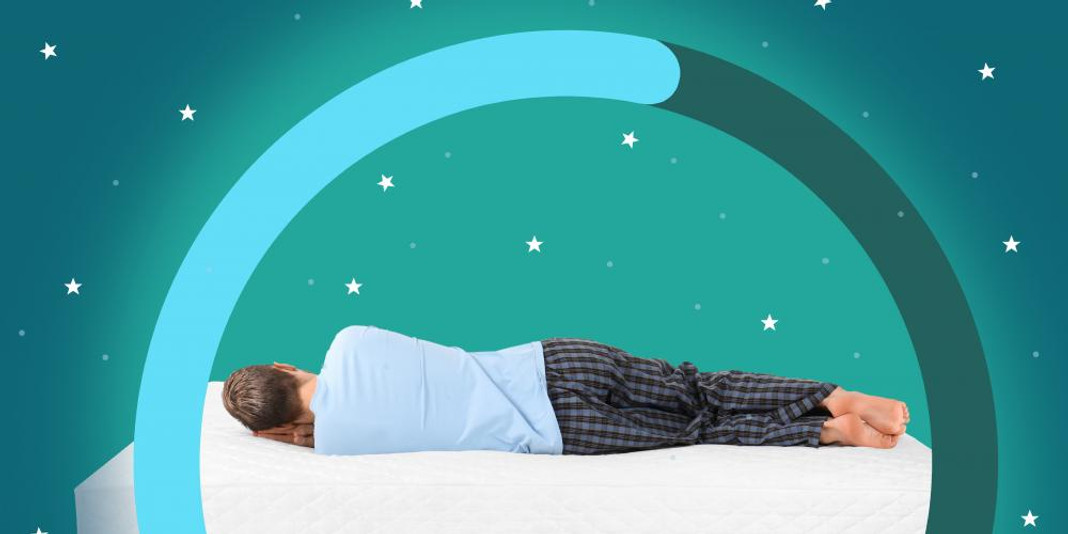
The Benefits Of Sleeping On Your Back
What are the benefits of sleeping on your back? On average, we spend almost a third of our lives resting or sleeping so it is very important that we sleep in a supportive and comfortable position since a lack of sleep impacts every process and gland within our body.
What is the healthiest sleep position?
For young, healthy people, sleep position is less important. But as one gets older, and perhaps have more medical issues, the position we sleep in can have an impact on general health.
Sleeping on your back is the most recommended position since the vertebrae in your back can align naturally in a neutral position. Most people with lower back pain find back sleep is helpful for alleviating pain.
Whilst sleeping on your back might be healthier for your spine, sleeping on your right-hand side is beneficial for your heart because it reduces pressure on the heart and may even stabilise blood pressure.
However, if you suffer from acid reflux, heartburn, or GERD, then sleeping on the right-hand side can make symptoms worse so it’s best to flip onto the left-hand side to ease the discomfort.
Sleeping on your stomach may reduce snoring but is a position that is considered unhealthy as it is stressful on your back and spine. When you sleep on your stomach, your torso sinks into the mattress because of its weight which can result in a misaligned spine causing pain on awakening.
Does sleeping on your back help with back pain?
A lack of sleep and back pain are often in an ongoing cycle. If you have back pain, you are less likely to be getting restful sleep and may be woken up by the pain. A lack of sleep can contribute to back pain because your body does not have sufficient time to repair and heal the injury while your sleep. Whilst everyone’s body is different, it is generally accepted that sleeping on your back is the most recommended position for those with back pain.
If you do have back pain, you may wish to consider the use of Superior Joints. This natural anti-inflammatory supplement contains Natural Eggshell Membrane known to rapidly alleviate pain, turmeric and ginger for their anti-inflammatory and circulatory benefits and hyaluronic acid to help cushion the cartilage tissue found in between bones.
If sleep is an issue due to the pain, then please take Sleep Tight capsules. This supplement contains a powerful blend of herbal relaxants and natural sedatives that send you to sleep quickly and help to achieve a better quality of sleep which help with the repair processes carried out within our body.
Benefits of back sleeping
Most people do not sleep on their backs; in fact, most of us are side sleepers. Almost one in six people are stomach sleepers which is the worst position for back pain. If you are struggling to sleep on your back, side sleeping or sleeping in the foetal position is preferable to stomach sleeping. If you are sleeping on your side, then the use of a pillow between the knees helps to align the spine.
Back sleeping is known to reduce back pain and displays other health benefits for example:
Back sleeping is often recommended by dermatologists for wrinkle reduction and for those suffering from inflammatory skin conditions. Back sleeping does not put pressure on the face whilst you sleep and as such will not put pressure on any spots or acne, allowing the skin to breathe.
Back sleeping is also a good choice for those with cold or sinus congestion because it allows drainage of fluids in the sinus cavity.
Back sleeping may help prevent heartburn and acid reflux.
Only 10% of people tend to sleep on their backs and invariably these people have had to train themselves to sleep comfortably this way. If you find it difficult to sleep on your back, there are many tips online to help you, but do try putting a pillow either side of your face, which may help prevent you rolling over in your sleep.
DISCLAIMER: The views, opinions and information expressed in this article and on Victoriahealth.com Ltd are those of the author(s) in an editorial context. Victoriahealth.com Ltd cannot be held responsible for any errors or for any consequences arising from the use of the information contained in this editorial or anywhere else on the site. Every effort is made by the editorial and content team to see that no inaccurate or misleading information, opinion or statement appear, nor replace or constitute endorsement from medical bodies or trials unless specified. Victoriahealth.com Ltd accept no liability for the consequences of any inaccurate or misleading data, information, opinion or statement. Information on Victoriahealth.com Ltd and in the editorials is provided for informational purposes only and is not intended as a substitute for the advice provided by your physician or other healthcare professional. You should not use the information on this website or in the editorials for diagnosing or treating a health concern or disease, or for the replacement of prescription medication or other treatment.


